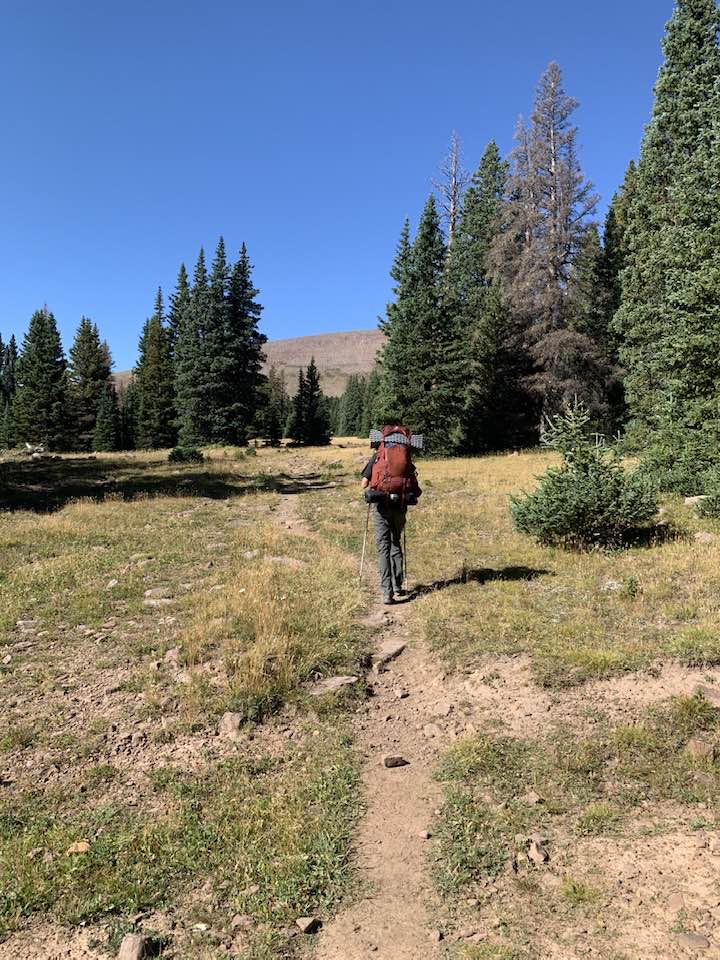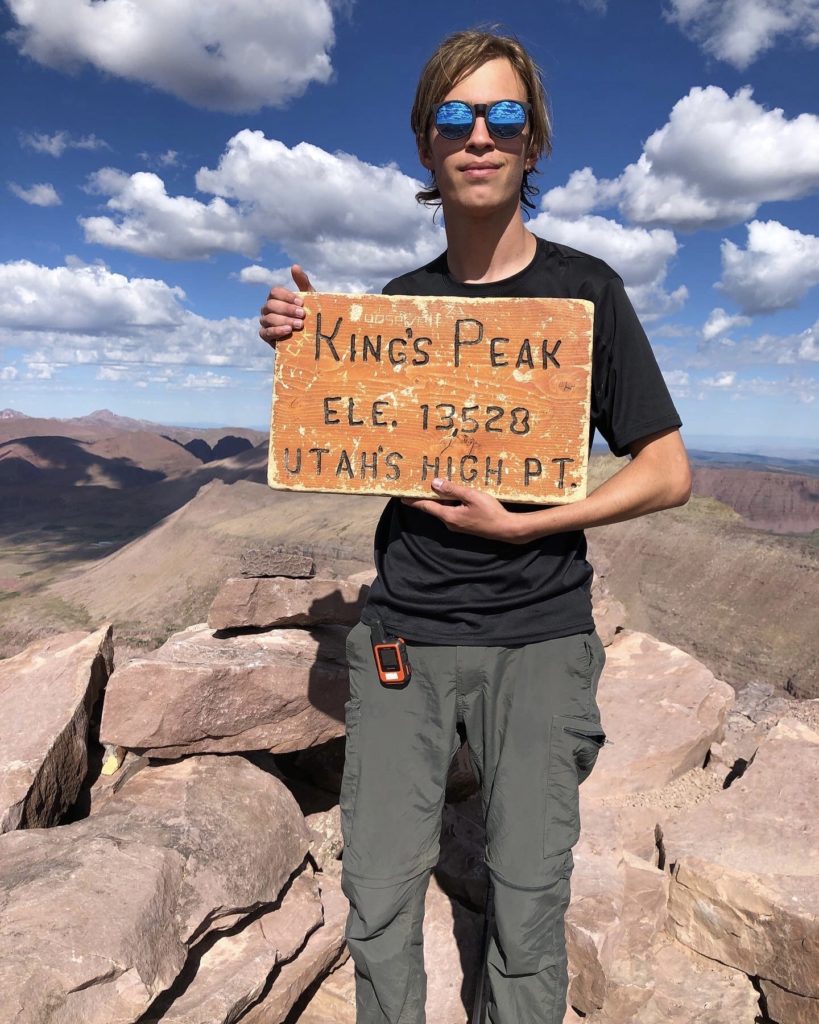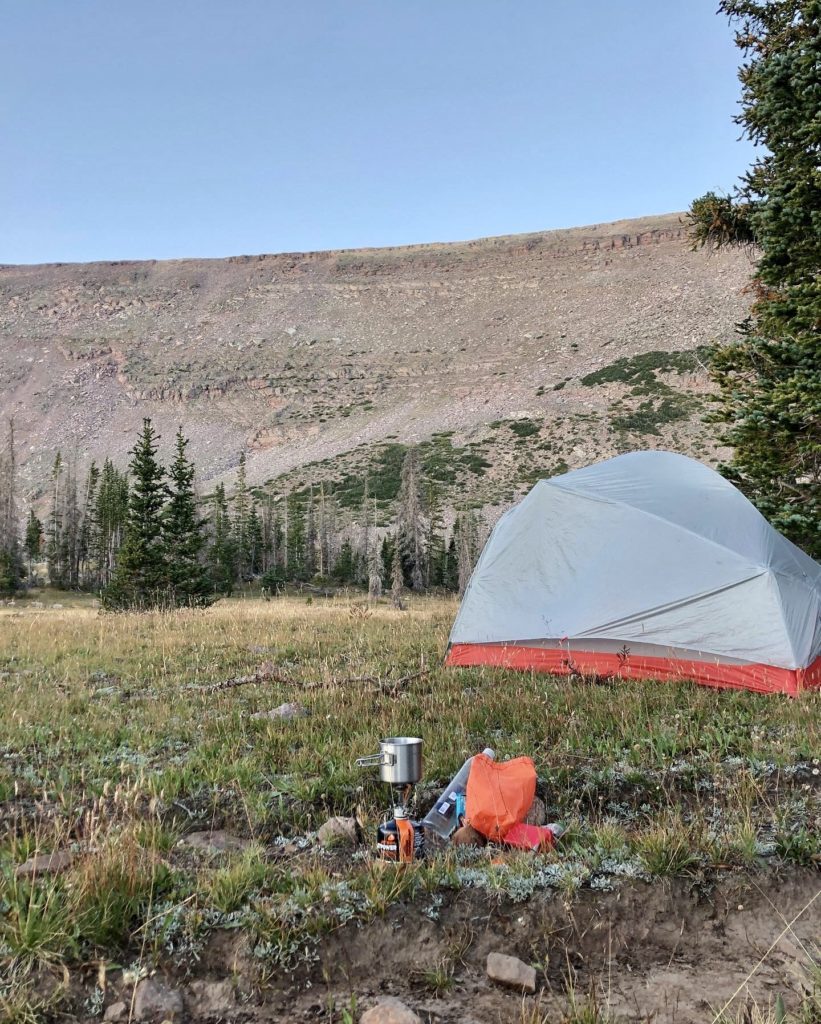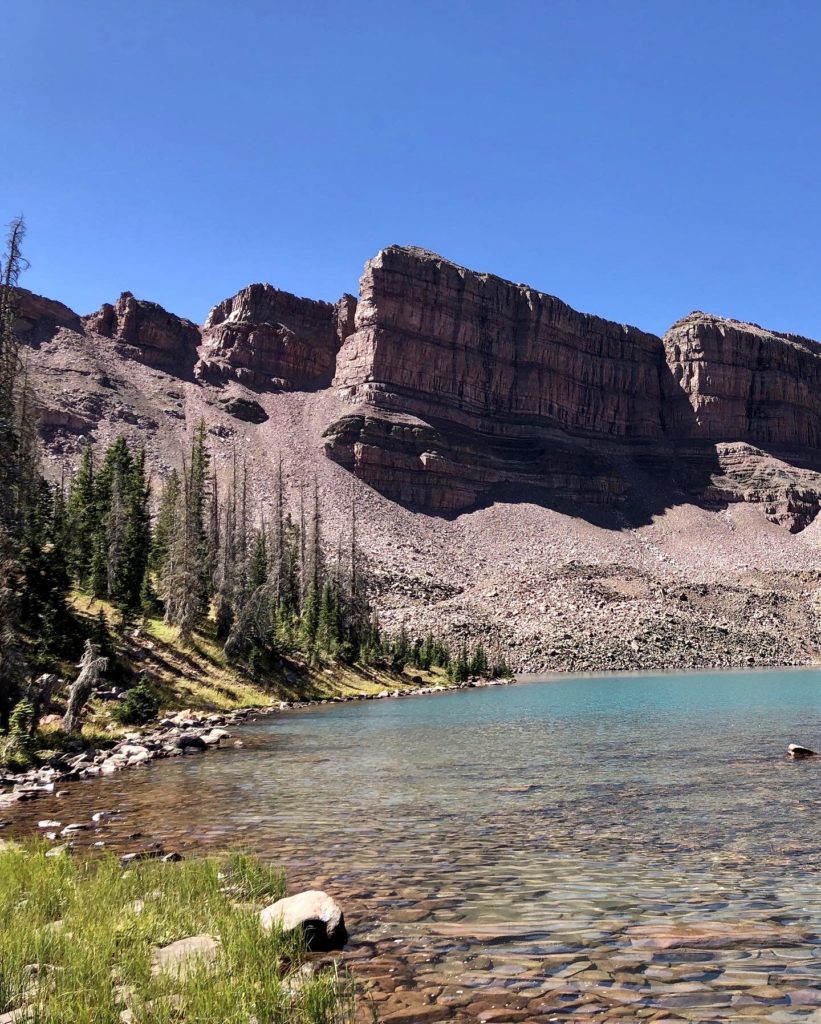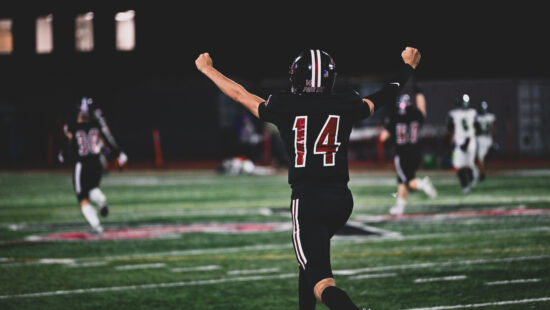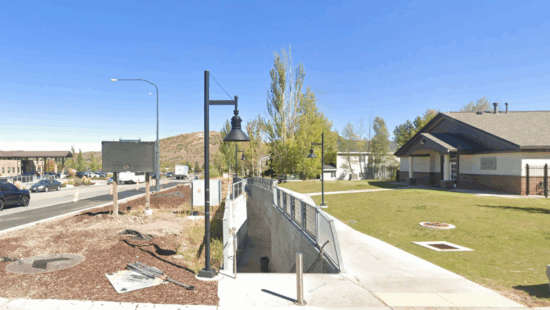Health
18-year-old Parkite’s 81 mile solo sojourn along the Uinta Highline Trail
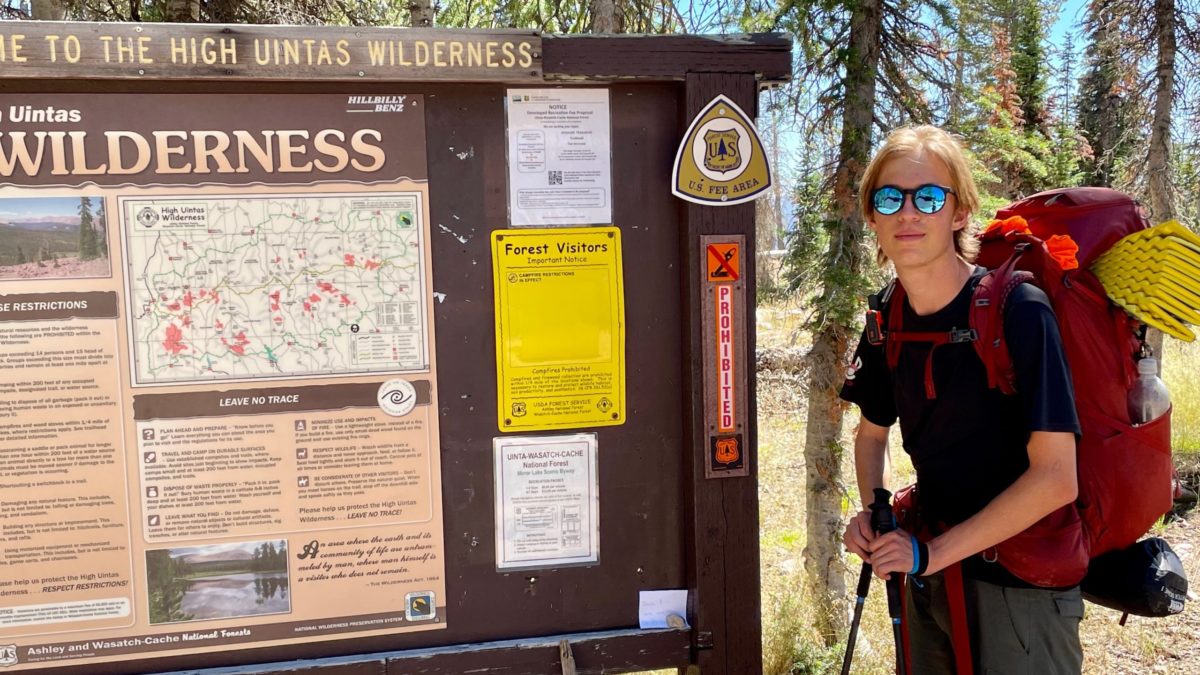
Noam Levinsky setting off on a trip for the ages. Photo: Levinsky family.
SUMMIT COUNTY, Utah — This week, Noam Levinsky, 18, reentered society after five days of hiking and camping his way 81 miles through the wilderness alone. Next week, the recent Park City High School graduate will leave to be a freshman at the University of Chicago.
While his family is fairly outdoorsy, they never introduced him to nature at this level. “Long-distance hiking is something I pursued on my own,” Levinsky said.
He chose the Uinta Highline Trail from Leidy Peak to Hayden Pass, considered by many to be the gold standard of backpacking in Utah. It traverses the entire Uinta Range from east to west, including eight major mountain passes and Kings Peak, the highest point in Utah at 13,528 feet.
“I wanted to challenge myself both physically and mentally. I also wanted to see the Uinta’s natural beauty one last time before I moved back to the Midwest.” Levinsky was born and raised in Chicago, moving to Park City as a preteen. He currently works at both Starbucks as a barista and the Park City High School as an assistant Debate Team coach.
Levinsky tried to pack light but estimated that his backpack weighed between 25 and 30 pounds. He carried essential camping gear (tent, sleeping bag, stove, etc.) and a lot of food. He also brought a book, The Undocumented Americans. Whether there’s a book in his hand or not, literary references are in his mind as Levinsky refers to this backpacking experience as his bildungsroman.
He only saw approximately two people per day but did see a lot of sheep grazing in the meadows. For better or worse, he encountered no other notable wildlife.
He cooked a meal every night for dinner, then breakfast and lunch consisted of bars, nuts, and dried fruit. “It was really challenging finding vegetarian food that could fuel me for such long hikes.”
Levinsky carried a Garmin Inreach, which uses satellite technology to send texts in areas without cell service and is also equipped to contact rescue services. “I used that to check in with my parents each night, letting them know I was okay.” If anything bad happened (although nothing did), he would’ve hiked out to the nearest trailhead (20 miles away at some points) or used the Garmin to arrange an emergency rescue, depending on the severity of the problem.
“I though it would be valuable to be alone for five days so I could reflect on my goals and values going into college. During such a transitionary part of my life, I gained a lot of clarity about what I want from the future and how I plan on getting there.”
Finishing the trail as planned, he felt appreciative of his time alone, not ‘in’ the mountains but rather ‘with’ the mountains. The scariest part was the prospect of being alone and knowing that he was mainly on his own if anything went wrong. There were also some scary parts of the trail; moments when a fall would’ve meant severe injury or when he thought he might have been lost.
Levinsky highly recommends long-distance hiking to other people like him. As a self-described non-athlete who doesn’t work out, he thinks most young folks are in good enough shape to do it. The real challenge, he acknowledged, is mental: the ability to be alone for long stretches of time and push your body close to its limit.
Meeting and achieving this goal sets Levinsky up nicely to do the same in applying his inherent and earned wisdom to his goals in college in his chosen field of Environmental/Urban Studies.
